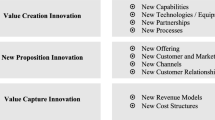Abstract
The processes followed for developing anticipatory standards such as those for web services are still not well-understood. In spite of the openness of the process, there are few analyses that shed light on the roles that different participants play or the actions they engage in during the development of these standards. We analyze archival documents that capture development of SOAP, a core web service standard. Our analysis shows that participants spend a bulk of their time discussing technical issues, identifying action items, and engaging in discussion to reach consensus. These activities reveal prototypical roles that participants take on such as: Advocate, Architect, Bystander, Critic, Facilitator, Guru, and Procrastinator. Together, the findings support the existence of three clusters in standards development processes: design activities performed by Architects, sense-making activities performed by Critics, and managerial activities performed by Facilitators; along with the important activity of coordinating the work of multiple participants. We discuss implications of our findings and identify opportunities for future work.















Similar content being viewed by others
References
Adams R, Rivaldo R, Germoglio G, Santos F, Chen Y, Milojicic DS (2008) Improving distributed service management using Service Modeling Language (SML). Network Operations and Management Symposium (NOMS). IEEE, pp 863–866
ATLAS.ti. (2005) ATLAS.ti. Scientific Software Development GmbH, Berlin, Germany
Barros A, Dumas M, Oaks P (2005) A critical overview of the web services choreography description language (WS-CDL). http://www.bptrends.com/publicationfiles/03-05%20WP%20WS-CDL%20Barros%20et%20al.pdf. Accessed 15 Feb 2009
Cargill CF (1997) Open systems standardization: a business approach. Prentice Hall, NJ
Choi B, Raghu TS, Vinze A, Dooley KJ (2009) Process model for e-business standards development: a case of ebXML standards. IEEE Trans Eng Manag 56(3):448–467
Feuerlicht G (2005) Design of service interfaces for e-business applications using data normalization techniques. Inf Syst E-Bus Manag 3(4):363–376
Fomin V, Keil T, Lyytinen K (2003) Theorizing about standardization: integrating fragments of process theory in light of telecommunication standardization wars. Sprouts: working papers on information environments. Systems and organizations 3(Winter)
Gebauer J, Tang Y, Baimai C (2008) User requirements of mobile technology: results from a content analysis of user reviews. Inf Syst E-Bus Manag 6(4):361–384
Hill JL (2003) ICT standardization: changing the world for a better tomorrow. Standardization and Innovation in Information Technology, pp 21–23
ISO (2010) Discover ISO: why standards matter. http://www.iso.org/iso/about/discover-iso_why-standards-matter.htm. Accessed 8 Apr 2010
Kretschmer T, Muehlfeld K (2004, October) Co-opetition in standard-setting: the case of the compact disc. NET institute working paper no. 04–14
Krippendorff K (2003) Content analysis: an introduction to its methodology, 2nd edn. Sage Publications, Thousand Oaks
Latour B (1992) Where are the missing masses? The sociology of a few mundane artifacts. In: Bijker W, Law J (eds) Shaping technology/building society: studies in sociotechnical change. MIT Press, Cambridge, pp 225–258
Lehr W (1992) Standardization: understanding the process. J Am Soc Inf Sci 43(8):550–555
Li M-S, Cabral R, Doumeingts G, Popplewell K (2006) Enterprise interoperability research roadmap. http://cordis.europa.eu/ist/ict-ent-net/ei-roadmap_en.htm. Accessed 9 Apr 2010
Lombard M, Snyder-Duch J, Bracken CC (2002) Content analysis in mass communication: assessment and reporting of intercoder reliability. Hum Commun Res 28(4):587–604
Lyytinen K, Keil T, Fomin V (2008) A framework to build process theories of anticipatory information and communication technology (ICT) standardizing. Int J IT Stand Stand Res 6(1):1–38
Neuendorf KA (2001) The content analysis guidebook. Sage Publications, Thousand Oaks
Purao S, Bagby J, Umapathy K (2008) Standardizing web services: overcoming Design by Committee. IEEE congress on services–part I. IEEE Computer Society, pp 223–230
Sheldon S, Kevin V (2006) The symbolic interactionist frame. In: Delamater J (ed) Handbook of social psychology. Springer, New York, pp 3–28
Simon HA (1977) The new science of management decision. Prentice Hall PTR, NJ
Simon HA (1996) The sciences of the artificial. The MIT Press, Cambridge
SML (2009, May 12) Service modeling language. http://www.w3.org/TR/2009/REC-sml-20090512/. Accessed 2 Sept 2010
SOAP (2003, 24 June 2003) Simple object access protocol (SOAP) Version 1.2. http://www.w3.org/TR/soap12-part1/. Accessed 19 Feb 2005
Stemler S (2001) An overview of content analysis. Pract Assess Res Eval 7(17). http://pareonline.net/getvn.asp?v=7&n=17
Umapathy K (2006) Assessment of web services specifications to support long-running conversations. Workshop on information technologies and systems (WITS). doi:http://ssrn.com/abstract=1025493
Umapathy K (2009) An investigation of W3C standardization processes using rational discourse. AIS special interest group on pragmatist IS research (SIGPrag) meeting. doi:http://sprouts.aisnet.org/9-70/
Virili F (2003) Design, sense-making and negotiation activities in the “web services” standardization process. MIS quarterly special issue workshop on standard making: a critical research frontier for information systems
W3C-Process (2005, 14 October) World wide web consortium process document. http://www.w3.org/2005/10/Process-20051014/. Accessed 26 Jan 2009
W3C-XMLWG (2000) XML protocol working group. http://www.w3.org/2000/xp/Group/. Accessed 16 Jan 2006
Weick KE (1995) Sensemaking in organizations. Sage Publications, Thousand Oaks
Weiss M, Cargill C (1992) Consortia in the standards development process. J Am Soc Inf Sci (JASIS) 43(8):559–565
Welser HT, Gleave E, Fisher D, Smith M (2007) Visualizing the signatures of social roles in online discussion groups. J Soc Struct 8(2):1–21
WS Arch (2005, 11 February 2004) Web services architecture. http://www.w3.org/TR/2004/NOTE-ws-arch-20040211/. Accessed 17 Feb 2005
WS-CDL (2005, 9 November) Web services choreography description language (WS-CDL). Candidate recommendation. http://www.w3.org/TR/ws-cdl-10/. Accessed 30 Apr 2008
Yin RK (2003) Case study research: design and methods, 3rd edn. SAGE Publications, Thousand Oaks
Zhao K, Xia M, Shaw MJ (2005) Vertical e-business standards and standards developing organizations: a conceptual framework. Electron Mark 15(4):289–300. doi:10.1080/10196780500302690
Author information
Authors and Affiliations
Corresponding author
Rights and permissions
About this article
Cite this article
Umapathy, K., Purao, S. & Bagby, J. Empirical analysis of anticipatory standardization processes: a case study. Inf Syst E-Bus Manage 10, 325–350 (2012). https://doi.org/10.1007/s10257-011-0169-1
Received:
Revised:
Accepted:
Published:
Issue Date:
DOI: https://doi.org/10.1007/s10257-011-0169-1




